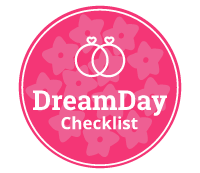Planning a wedding is an exciting journey filled with love, joy, and plenty of decisions to make. One of the first and most crucial steps in the wedding planning process is creating a budget. A wedding budget serves as a guiding framework, helping you allocate resources effectively and stay within financial boundaries. In this guide, we’ll explore how to create a wedding budget that fits your vision and, more importantly, how to stick to it.
In this article you will find:
- Setting Your Priorities
- Estimating Costs
- Creating a Spreadsheet
- Building in a Buffer
- Sticking to Your Budget
- Be Mindful of Your Priorities
- Track Your Spending
- Communicate Openly
- Get Creative
- Celebrate Small Wins
- Final Thoughts
Setting Your Priorities
Before diving into the nitty-gritty of numbers, take a moment with your partner to discuss your priorities for the big day. What aspects of the wedding are most important to you both? Are you dreaming of a fairytale venue, stunning floral arrangements, or a gourmet reception? By identifying your priorities, you can allocate a larger portion of your budget to the elements that matter most, ensuring you get the wedding of your dreams.
Estimating Costs
Research is key when estimating the costs associated with your wedding day. Gather quotes from vendors, venues, and service providers to get an idea of the average prices in your area. Allocate a portion of your budget to each major category, such as venue, catering, attire, decor, entertainment, and photography. Don’t forget to include additional expenses like taxes, tips, and any unforeseen costs that may arise.
Creating a Spreadsheet
Organize your budget using a spreadsheet or a budgeting tool that allows you to track expenses easily. Create categories for each aspect of your wedding and allocate a specific amount to each category. As you make payments and incur costs, log them in your spreadsheet to keep tabs on your spending. This will help you stay organized and prevent overspending in any particular area.
Building in a Buffer
It’s wise to build a buffer into your budget to account for unexpected expenses or last-minute additions. Aim to set aside around 5-10% of your total budget as a contingency fund. This buffer can provide peace of mind knowing that you have some flexibility if costs exceed your initial estimates.
Sticking to Your Budget
Once you’ve created your wedding budget, the real challenge begins – sticking to it. Here are some tips to help you stay on track:

Be Mindful of Your Priorities
Refer back to your list of priorities throughout the planning process. If you’re tempted to splurge on a detail that isn’t as important to you, remind yourself of what truly matters. Stay focused on what will make your wedding day memorable and meaningful.
Track Your Spending
Regularly update your budget spreadsheet to reflect your expenses accurately. Seeing the numbers in black and white can help you make informed decisions and identify areas where you may need to cut back to stay on target.
Communicate Openly
Open communication with your partner is crucial when it comes to budgeting. Be honest about your financial limitations and discuss any concerns or preferences openly. Together, you can make decisions that align with your shared vision.
Get Creative
If you find yourself nearing the limit of a particular budget category, get creative with solutions. DIY projects, seeking out budget-friendly alternatives, or repurposing items can help you save money without sacrificing style.
Celebrate Small Wins
Celebrate each milestone reached in your budgeting journey. Whether it’s finding a great deal on a vendor or staying under budget in a specific category, acknowledging your progress can motivate you to continue on your budget-friendly path.
Final Thoughts
Creating a wedding budget is not only about numbers; it’s a reflection of your priorities, values, and vision for your special day. By setting clear priorities, estimating costs accurately, and staying organized, you can create a budget that works for you. Remember, the most important aspect of your wedding day is the love you share with your partner, so keep that at the forefront of your planning process. Happy budgeting and happy planning!


